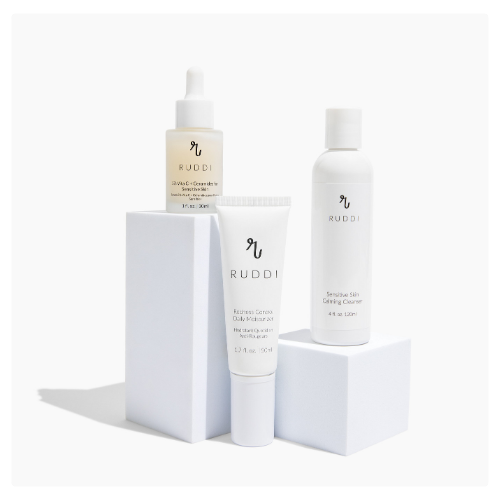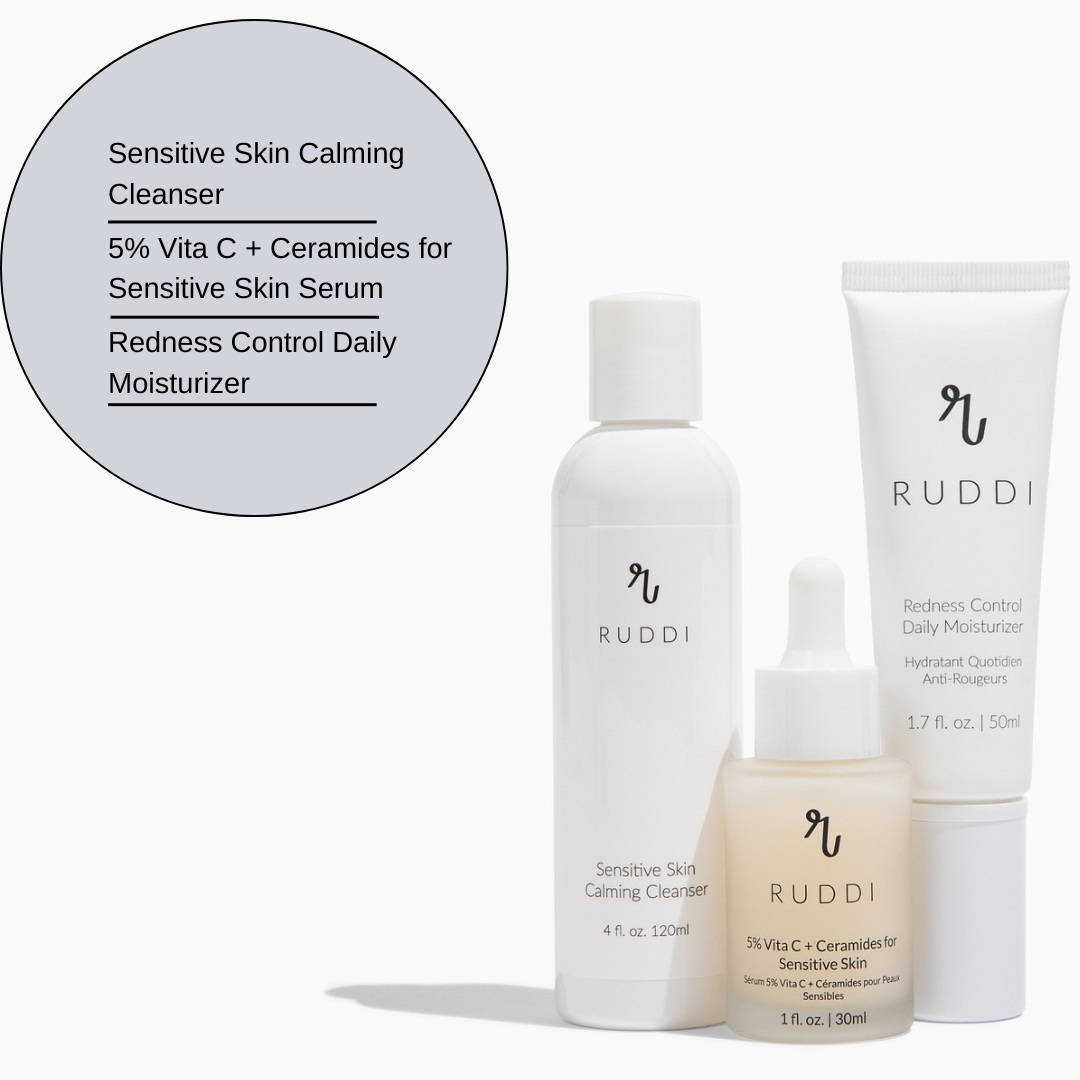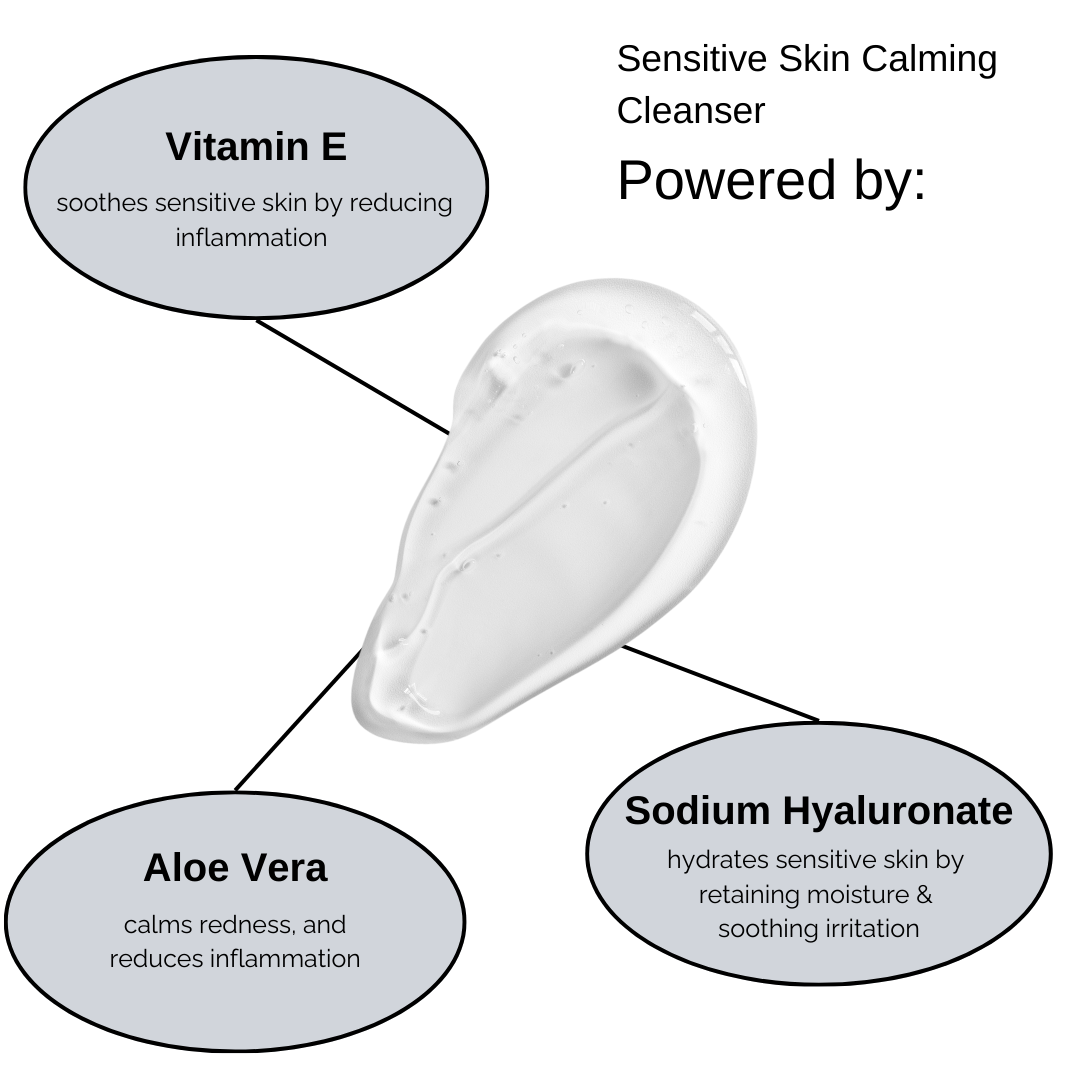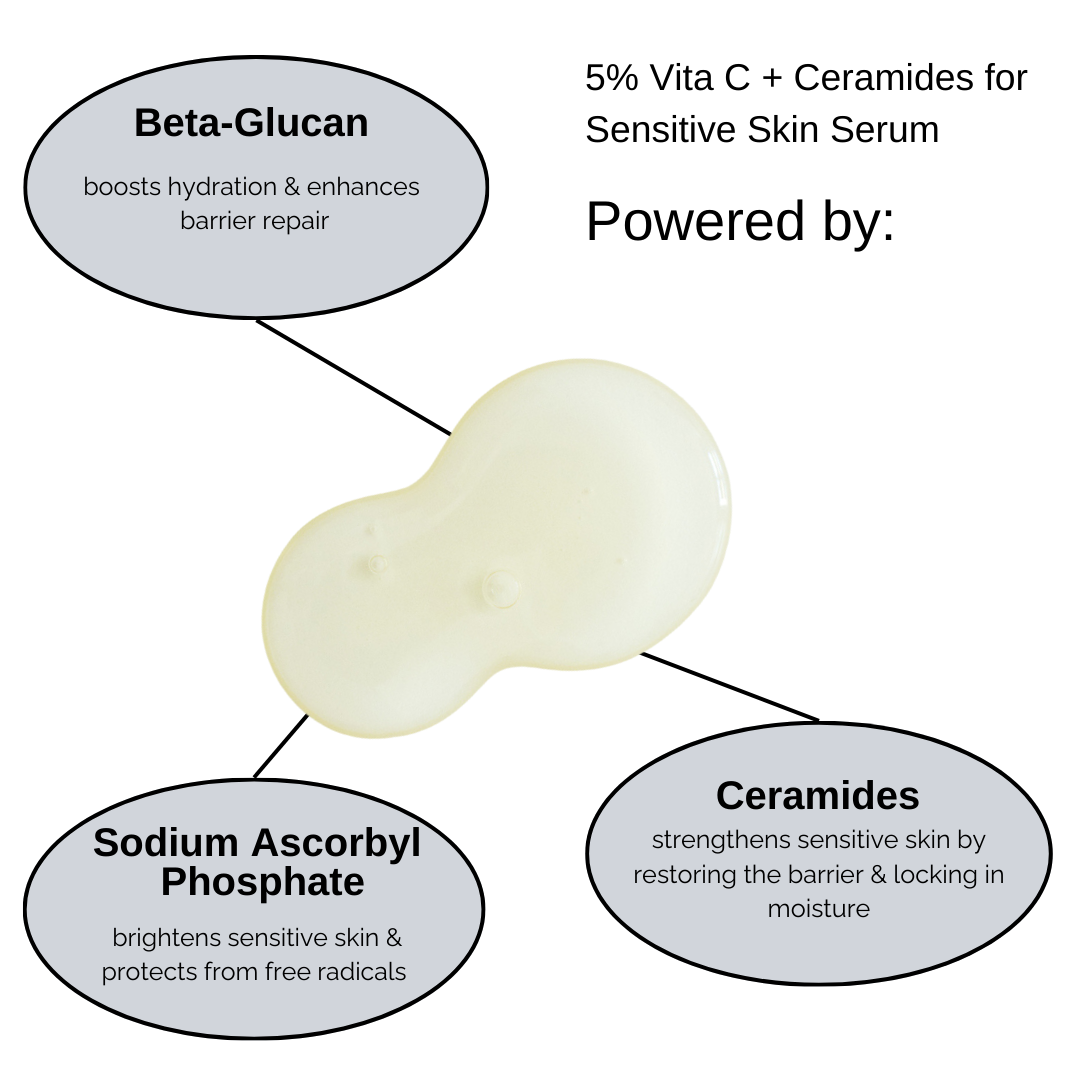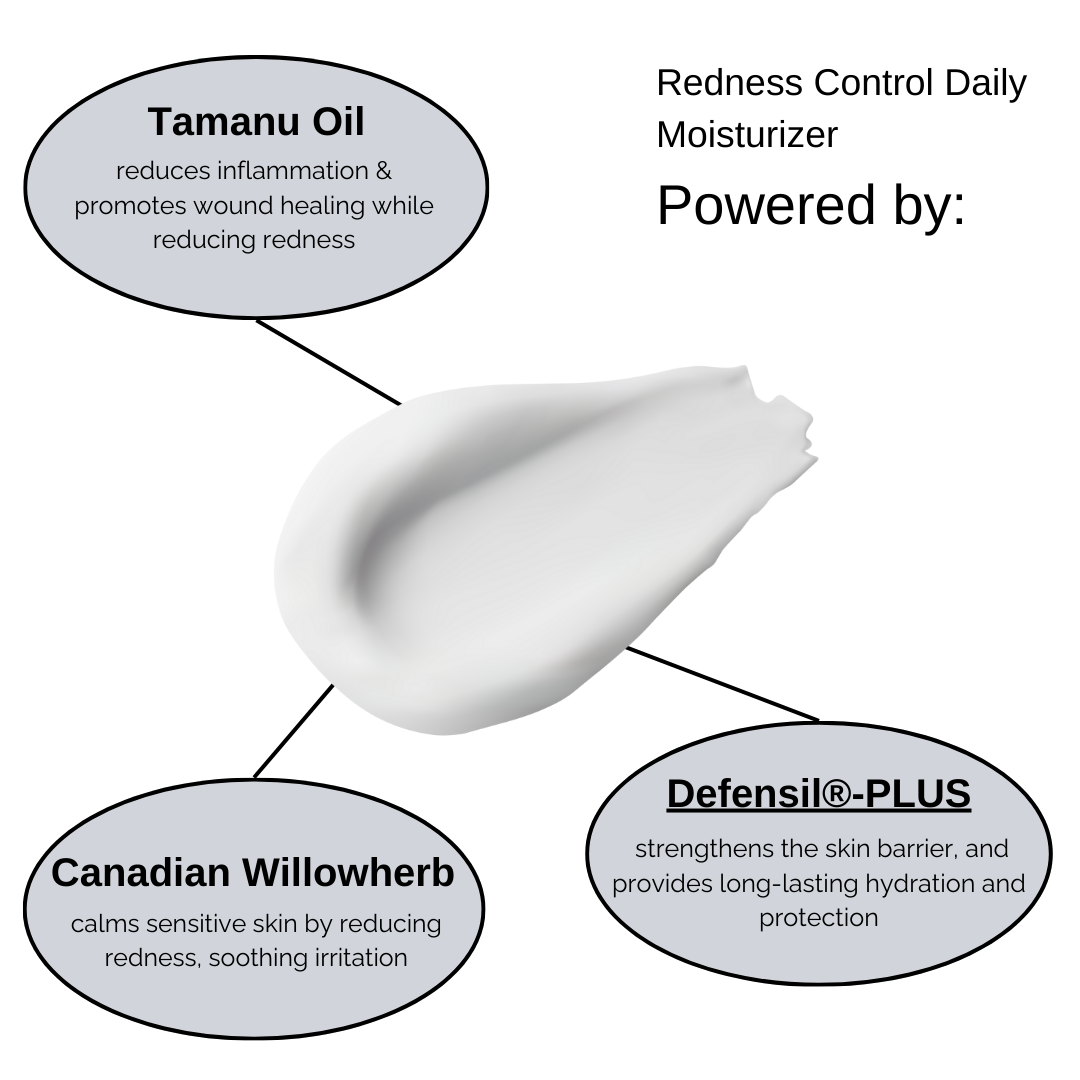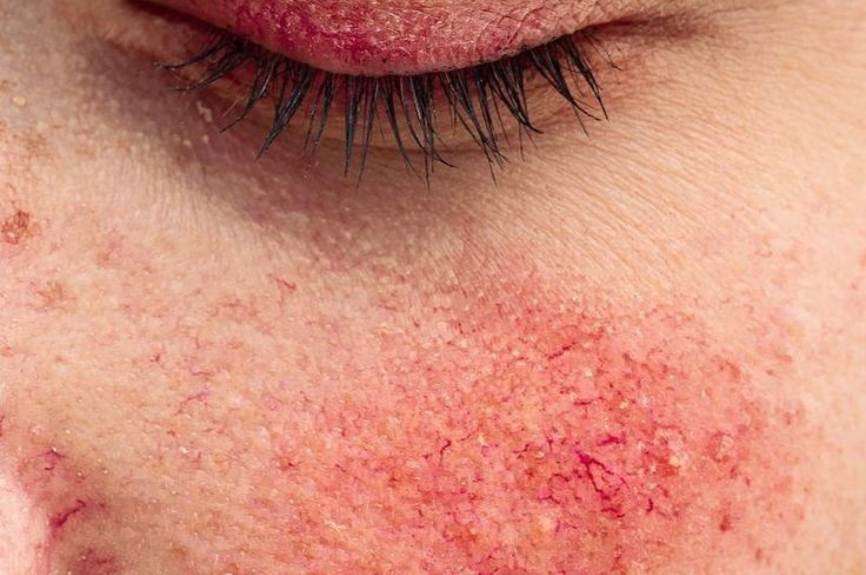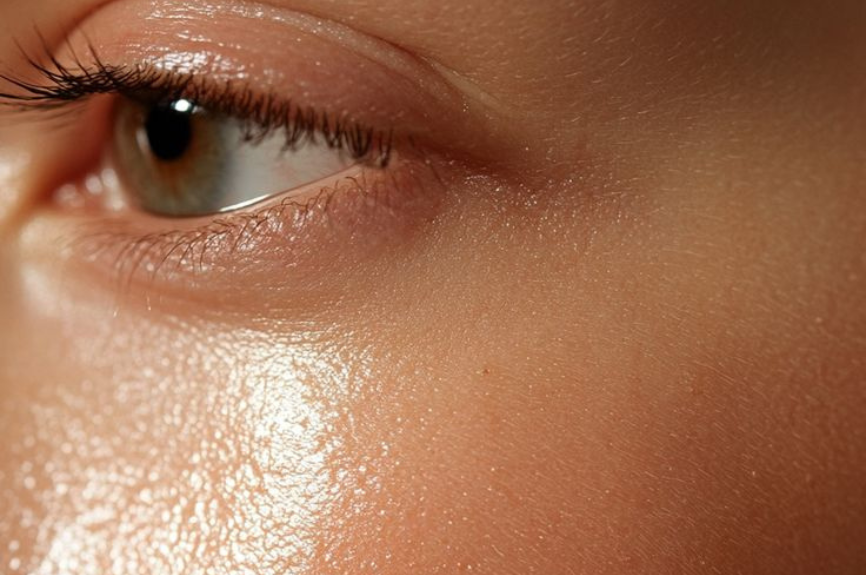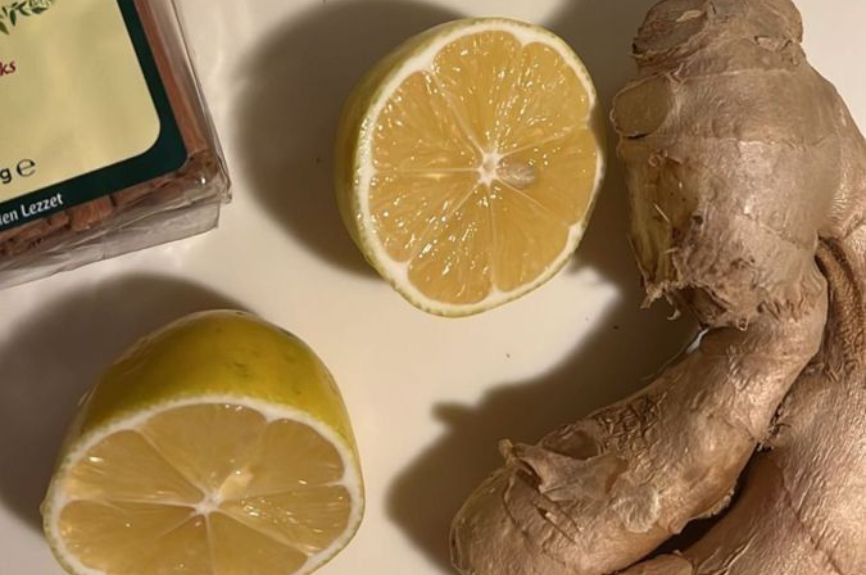
The Gut-Skin Connection: How Your Digestive Health Impacts Rosacea
Rosacea has long been viewed as a skin-deep issue, but emerging research shows that the root of the condition may go much deeper—all the way to your gut. If you’ve been managing rosacea with topical products alone and seeing limited results, the missing link might be your gut health.
This powerful internal connection is often referred to as the gut-skin axis, and it’s a key player in skin inflammation, immune response, and even flare-ups in chronic skin conditions like rosacea.
Let’s explore how this gut-skin connection works and what it means for people living with rosacea.
🌿 What Is the Gut-Skin Axis?
The gut-skin axis refers to the two-way relationship between your digestive system and your skin. Your gut houses trillions of microorganisms—collectively known as the gut microbiome—that play a critical role in regulating immune responses, digestion, and inflammation.
When the gut microbiome is in balance (a state known as eubiosis), it helps support healthy skin. But when it’s disrupted (dysbiosis), it can trigger systemic inflammation, impaired immunity, and worsen conditions like rosacea, eczema, and acne.
🔥 The Gut and Rosacea: What’s the Link?
Multiple studies suggest that people with rosacea are more likely to suffer from gut-related conditions, including:
-
Small Intestinal Bacterial Overgrowth (SIBO)
-
Helicobacter pylori infection (a bacterium linked to ulcers and inflammation)
-
Irritable Bowel Syndrome (IBS)
-
Inflammatory Bowel Disease (IBD)
These conditions can lead to chronic low-grade inflammation, which in turn affects the skin. Here's how:
1. Leaky Gut = Leaky Skin
A compromised gut lining can become "leaky" (known as increased intestinal permeability), allowing toxins, undigested food particles, and bacteria to enter the bloodstream. This activates the immune system, which can lead to inflammatory flare-ups on the skin, including rosacea.
2. Inflammatory Cascades
An imbalanced gut microbiome can produce pro-inflammatory cytokines—chemical messengers that travel through the body and trigger redness, swelling, and irritation in the skin.
3. Histamine Intolerance
A poorly functioning gut can contribute to histamine overload, which may worsen flushing and redness—key symptoms of rosacea.
4. Immune Dysregulation
Since over 70% of your immune system lives in the gut, any imbalance can throw off your body's ability to regulate inflammation. For those with rosacea, this can mean more frequent or severe flare-ups, especially in response to triggers like food, stress, or heat.
🧪 What Does the Research Say?
-
A study published in the Clinical Gastroenterology and Hepatology Journal found that treating SIBO in rosacea patients led to significant and lasting improvements in skin symptoms.
-
People with Helicobacter pylori infections have been shown to be more likely to have rosacea, and treatment of this infection has resulted in improved skin clarity in some cases.
-
An increasing body of research supports the role of probiotics (both oral and topical) in reducing inflammation and strengthening the skin barrier.
🥗 Supporting Rosacea Through Gut Health: What You Can Do
If you suspect your gut may be contributing to your rosacea, here are science-backed steps to support your digestive health:
✅ 1. Clean Up Your Diet
-
Reduce sugar, processed foods, and alcohol—these feed harmful gut bacteria.
-
Eat more fiber-rich vegetables, fermented foods (like sauerkraut or kefir), and anti-inflammatory foods such as leafy greens, fatty fish, and berries.
✅ 2. Consider a Probiotic
-
Oral probiotics can help restore microbial balance.
-
Some strains shown to benefit rosacea-prone skin include Lactobacillus rhamnosus GG, Lactobacillus reuteri, and Bifidobacterium infantis.
✅ 3. Address Underlying Gut Conditions
-
Work with a healthcare provider to rule out or treat SIBO, H. pylori, or leaky gut.
-
Breath tests and stool tests can help uncover what’s going on internally.
✅ 4. Reduce Stress
-
Stress impacts both gut function and rosacea flare-ups. Mindfulness, yoga, and consistent sleep can improve both gut and skin health.
✅ 5. Choose Gut-Friendly Skincare
-
Avoid harsh, stripping products that disrupt your skin’s barrier—your skin microbiome is just as important as your gut microbiome.
-
Look for calming, non-irritating ingredients like niacinamide, beta-glucan, squalane, and azelaic acid.
🌟 The Takeaway
Rosacea isn’t just a skin condition—it’s often a sign of internal inflammation, with the gut playing a central role. By supporting your digestive health, you may be able to reduce flare-ups, calm inflammation, and achieve clearer, more resilient skin.

